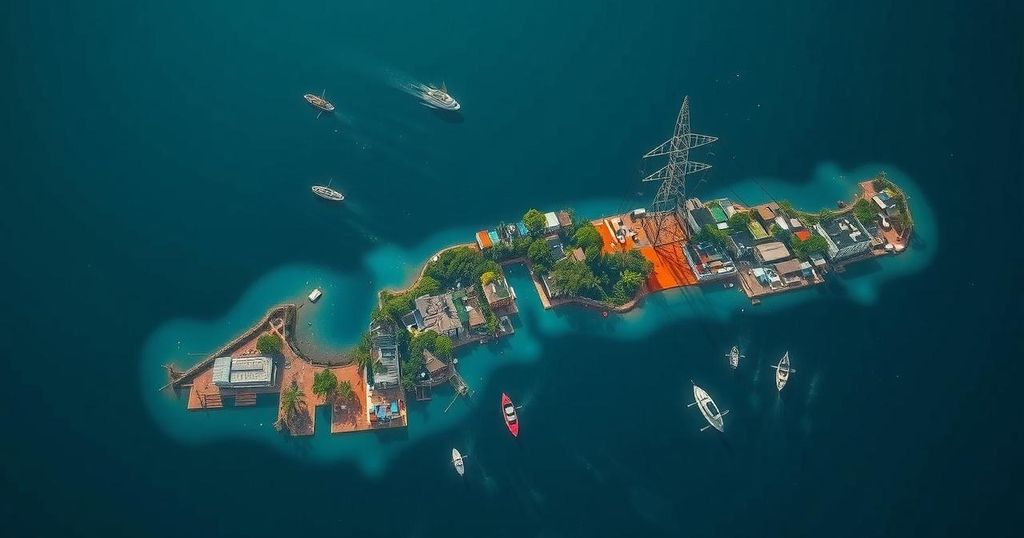Global news
ASIA, CUBA, EUROPE, GERMANY, GULF OF MEXICO, HURRICANE, HURRICANE BERYL, ISRAEL, JOSE MARTI INTERNATIONAL AIRPORT, MIGUEL DIAZ - CANEL, NATIONAL HURRICANE, NATURAL DISASTER, NATURAL DISASTERS, NHC, NORTH AMERICA, PINAR DEL RIO, POWER OUTAGES, RAFAEL, TRUMP, UNITED, UNITED STATES NATIONAL HURRICANE CENTER, YD, YDAEL PEREZ BRITO
Jamal Walker
0 Comments
Cuba Faces Nationwide Power Outage Following Hurricane Rafael
Cuba is currently facing a nationwide power outage caused by Hurricane Rafael, which has devastated the western regions of the island. The hurricane led to destruction of crops, trees, and power lines, aggravating the island’s existing vulnerabilities due to aging infrastructure. Authorities are mobilizing military resources for recovery, but citizens express growing concern and skepticism regarding the government’s effectiveness amid ongoing economic challenges.
The island of Cuba has recently experienced a widespread power outage, affecting all of its residents for the second time in two weeks following the devastating impact of Hurricane Rafael. This Category 3 hurricane traversed the western regions of the island, resulting in significant destruction to crops, trees, and power infrastructure. Local authorities reported minimal damage assessment updates due to the hurricane’s aftermath, with communities emerging to witness the extent of the destruction wrought upon their homes and local agriculture. After the hurricane impacted the island, causing maximum sustained winds of 185 km/h and creating hazardous storm surges, it subsequently weakened upon entering the Gulf of Mexico. The destruction has dealt a heavy blow to Cuba’s critical tobacco-growing sectors, compelling farmers to take precautions to protect valuable crops. In the wake of the storm, Havana’s streets were largely deserted as businesses and educational institutions remained closed while public transportation slowly resumed operations. In response to the crisis, Cuban President Miguel Diaz-Canel announced that military resources would be mobilized to assist in recovery efforts, reiterating the government’s commitment to restore stability. However, many citizens expressed concern and despair, reflecting an unsettling sense of redundancy after experiencing previous outages. The current economic difficulties facing Cuba, exacerbated by strained relations with the United States and challenges faced by its traditional allies, have led to widespread skepticism among citizens about the government’s ability to address basic needs effectively. The recent hurricane season has proved particularly active, with Rafael marking the 17th named storm of the year. The forecasts indicate that the 2024 season may be exceptionally severe. Given the increased frequency and strength of storms, Hurricane Rafael is indicative of ongoing climatic challenges that present dire threats to vulnerable regions such as Cuba, further complicating recovery efforts after natural disasters.
The article addresses the repercussions of Hurricane Rafael, a recent Category 3 hurricane that resulted in an islandwide power outage in Cuba. Given the island nation’s vulnerability to hurricanes, especially with its aging infrastructure, significant challenges arise in terms of disaster management and recovery. This situation reflects not only the impact of natural disasters but also the socio-economic conditions that hinder effective governmental response and public confidence in disaster recovery mechanisms. The historical context of similar recent events underscores the cyclical nature of vulnerability in Cuba as it grapples with both immediate and long-term recovery.
In summary, Hurricane Rafael has left the entirety of Cuba without power for the second time in a span of two weeks, marking a significant challenge in terms of disaster recovery and public confidence in the government. As the island confronts extensive damage to its agricultural sectors and infrastructure, the need for effective response strategies becomes increasingly urgent. The current situation is compounded by the historical context of similar challenges, underscoring the necessity for a robust and reliable approach to disaster management in light of ongoing climatic threats.
Original Source: www.aljazeera.com




Post Comment